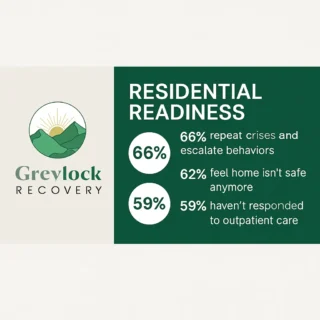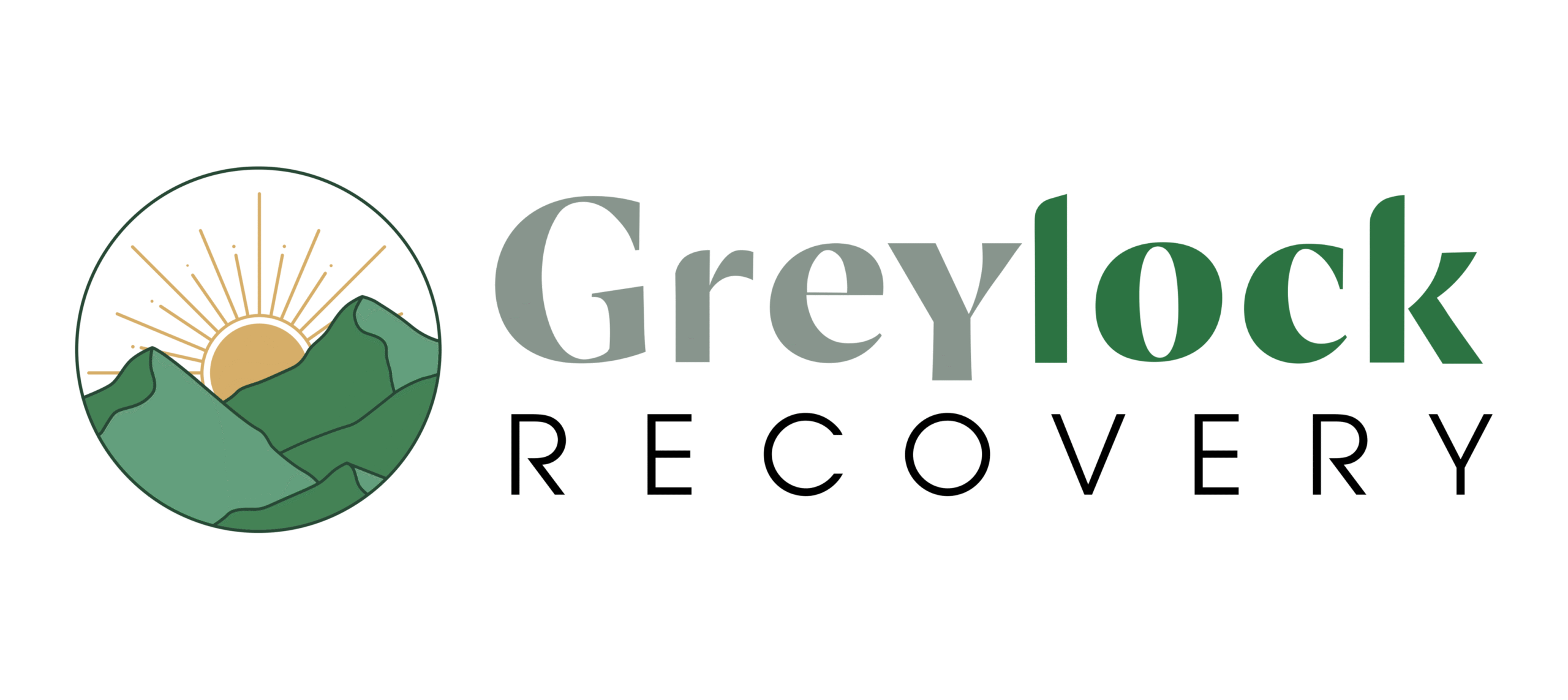You didn’t think you’d ever have to Google this.
You’re the parent who shows up. You’ve sat through therapy sessions. You’ve read every article. You’ve called every hotline. You’ve listened when your child didn’t want to talk and spoken gently when they needed boundaries. And still—things are getting worse.
Maybe your young adult is spiraling—substance use, mental health crashes, aggressive outbursts, withdrawal from life. Maybe it’s been building quietly over time. Or maybe you’re coming off another terrifying night and wondering if this is finally the line.
And now, with your heart in your throat, you’re asking: Is it time for residential treatment?
At Greylock Recovery in Williamstown, Massachusetts, we meet parents at this exact point every day—tired, heartbroken, but still fighting for their kids. This blog will help you know what to watch for, what this kind of care actually means, and why it’s not giving up—it’s stepping in.
When Love Isn’t Enough—and Home Isn’t Safe
You’ve done everything you know how to do. And if you’re reading this, it’s probably because your child’s situation has passed the point of “normal struggle.”
Maybe their mood swings have become violent. Maybe you’ve found drugs, or they’ve admitted to using. Maybe they’ve stopped showing up to class, work, meals, or even leaving their room. Or maybe their mental health has deteriorated to the point where they say things that make your stomach drop.
You know your child. You know when something is just a phase—and when something is spiraling.
Residential care becomes a need when:
- The crisis keeps repeating itself
- Your home feels more like a pressure cooker than a refuge
- Safety—physical or emotional—is no longer guaranteed
This isn’t about not loving them enough. It’s about loving them enough to act.

Red Flags That Outpatient Just Isn’t Cutting It
Most families start with outpatient therapy. And for many, it works.
But if your child…
- Won’t go to sessions (or lies about it),
- Leaves therapy angry or numb,
- Gets worse between visits,
- Or seems totally disconnected from any effort to get better…
…it may be time to level up care.
Outpatient therapy is not designed for crisis containment. It’s a long-term support strategy. But when your child’s condition is acute—meaning it’s escalating fast, risking safety, or deeply impairing daily life—residential treatment offers the intensity and containment outpatient care can’t.
What Residential Treatment Actually Offers
This isn’t boot camp. It’s not a warehouse. And it’s not about locking your child away.
A high-quality residential treatment program provides:
- 24/7 emotional and clinical support
- Medication monitoring (if needed)
- Structured daily routines
- A break from peer, tech, or environmental triggers
- Intensive therapy in group and individual formats
- Support for co-occurring issues (anxiety, depression, trauma, ADHD, substance use)
At Greylock Recovery, we treat each young adult with the respect they haven’t felt in a while. Because many kids who act out are hurting more deeply than they’ll ever admit—and they’ve stopped believing anyone can help.
We start by earning trust. We build routine around chaos. And then, slowly, we help them re-engage with themselves.
When You’re the One Falling Apart
This isn’t just hard on them—it’s brutal on you.
You’re walking around with your phone always charged, always near. You’re sleeping light. You’re rehearsing conversations. You’re waiting for the next crisis and praying it’s not the one.
And sometimes, you’re mourning the version of your child that used to laugh, engage, try, dream.
You may be:
- Doing damage control at school, with family, or with other siblings
- Grieving milestones that are slipping away
- Losing your sense of confidence as a parent
- Scared to even ask for help because you fear being judged
We see you.
Residential care isn’t just about your child—it’s about giving you room to breathe. To recover your strength. To stop feeling like you’re one meltdown away from collapse.
What “Readiness” Actually Looks Like
Parents often wait for a moment of clarity. A rock bottom. A breakdown that’s “bad enough.”
But readiness for residential care doesn’t always come in big, dramatic forms.
Sometimes it looks like:
- Another hospital visit that ends in discharge with no plan
- A therapist saying, “I don’t know if I can help them anymore”
- Your gut telling you, This can’t go on like this
- Your child saying, “I don’t care if I wake up tomorrow”—or not saying anything at all
You don’t need to wait for a catastrophe to act. You just need to trust what you already know: your child needs more than what’s available right now.
Success Is Slow—But It’s Real
This isn’t a quick fix.
Most young adults don’t enter residential care with open arms. They push back. They resist. They say nothing will help. That’s normal.
But we’ve seen what happens when the noise clears and the survival brain quiets.
We’ve watched:
- A 19-year-old who hadn’t been to class in a year start sketching again and applying to local colleges
- A 17-year-old who tried to run away on day one stay for 60 days, then hug their parent at discharge
- A 21-year-old finally say out loud, “I want to stay alive—but I don’t know how”
These aren’t magic turnarounds. They’re hard-earned, step-by-step openings to change.
FAQs: Residential Care for Crisis-Stage Families
How do I know for sure that my child needs residential care?
If your child is in danger, refusing care, or declining even with outpatient support, residential care is worth considering. We can help you assess the situation, not pressure you.
What if my child refuses to go?
That’s common. We can help you set boundaries, explore legal or clinical options, and provide strategies for motivating participation without escalating conflict.
Is this a punishment?
No. This is about safety and healing. We treat every client with respect, autonomy, and clinical support. This is not about blame—it’s about giving them what home can’t right now.
How long will my child be in care?
Programs vary, but most clients stay between 30–90 days. Some transition into outpatient care after, while others may need extended support. We create individualized plans.
What’s my role during the process?
You’ll be involved. Most programs include family therapy, communication coaching, and re-entry planning. You are not being pushed out—you are being supported, too.
This Is Still Your Child—and There’s Still Time
It might feel like they’ve disappeared. Like the version of your child you loved is gone.
But we promise you: they’re still in there. Scared. Angry. Shut down. But reachable.
And you don’t have to wait for one more worst-case scenario to act.
You’re allowed to say, We need help. You’re allowed to say, We can’t do this alone anymore. And you’re allowed to believe that healing is still possible—even if today feels like the end of the rope.
You don’t have to hold this alone anymore.
Call us at (413) 848-6013 or visit Greylock Recovery’s residential treatment program in Williamstown, Massachusetts to learn how we help families find stability, hope, and real change—together.


